 |
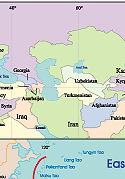 |
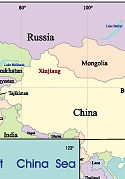 |
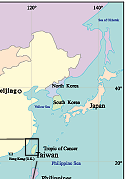 |
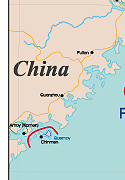 |
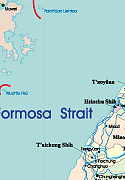 |
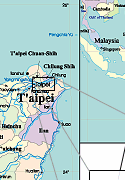 |
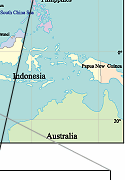 |
 |
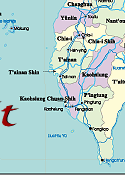 |
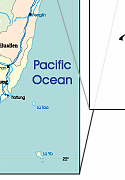 |
 |
|
November 12, 1999 The Myth of Casualty Aversion YOUR DEATH IS ACCEPTABLELast week the Washington Post published an article entitled "A Look at Casualty Aversion," How Many Deaths Are Acceptable? A Surprising Answer (November 7, 1999), in which political scientists Peter D. Feaver and Christopher Gelpi of Duke University make a surprising claim. Feaver and Gelpi allege that America's foreign policy elites have swallowed a "Casualty Aversion Myth" that "Americans demand a casualty-free victory as the price of supporting any military intervention abroad." If only that were true. Feaver and Gelpi scornfully dismiss those who oppose arrogant meddling abroad as "defenders of the 'we can't take it anymore' school of thought." They concede "There was a CNN effect in Somalia, but it did not involve the American public; it involved government officials." "Our study confirmed that the myth of casualty aversion is entrenched at the upper levels of society. Overwhelmingly, both civilian and military leaders agreed with the statement, 'The American public will rarely tolerate large numbers of U.S. casualties in military operations."' This irks Feaver and Gelpi to no end. However, all is not lost. According to the authors "the general public is far more willing to tolerate combat losses than civilian policymakers – or senior military officers." Thank God! "A very different picture emerges from the citizens themselves. We asked respondents to consider how many American deaths would be acceptable... Regarding America's long-standing commitment to defend Taiwan against China, we found broad consensus: All three groups [the general public, influential civilians, and members of the military] agree that this mission would be worth the sacrifice of a substantial number of American lives."
WILL YOUR BODY RETURN HOME IN ONE OF 20,172 BODYBAGS?If the "Mass Public" in America is willing to tolerate the loss of "only" 20,172 American troops before calling it quits, the chest-thumping China haters in our GOP congress may as well stop kidding themselves right now, before any American lives are lost, for no good reason. Why? Because Beijing is willing – albeit hardly eager – to lose hundreds of thousands, possibly even millions of Chinese troops' lives to prevent the loss of Taiwan, which is sovereign Chinese territory. Beijing is willing to lose at least as many lives preventing Taiwan secession as the Union was willing to lose preventing Confederate secession, or North Vietnam was willing to lose to prevent the partition of Vietnam into northern and southern halves. How many casualties are the pusillanimous Taiwan separatist "leaders" willing to lose fighting for Taiwan "independence?" If you're talking about the separatist elite themselves, none. The KMT, DPP separatist elites' US and Japanese passports all come equpped with up to the minute visas. Just in case. ROC citizens without the political connections, and ordinary American grunts will be doing the fighting and dying for them. |
||||||||||
|
Bevin
Chu is an American architect of Chinese descent registered to practice
in Texas. Currently living and working in Taiwan, Chu is the son
of a retired high-ranking diplomat with the ROC (Taiwan) government.
His column, "The Strait Scoop," now appears Fridays at
Antiwar.com. Archived Columns The
Myth of Casualty Aversion Gary
Bauer's Un-American Values The
Dalai Lama's Politics of Race A
Republic, Not an Empire: The Conventional Wisdom is Wrong, Dead
Wrong All
Politicians are Essentially Actors: Al Pacino, Ronald Reagan and
Lee Teng-hui Playing
Politics with Taiwan's Quake Victims
Taiwan's Great Earthquake and the Mandate of Heaven Taiwan's
Little Emperors Globocops
With Guillotines Taiwan
Independence and the Stockholm Syndrome Taiwan Independence and Free Lunches (8/31/99) |
THE "W" WORD"It would be a grave mistake to believe that we [emphasis added] can wield influence around the world and use our [emphasis added] military to defend national interests without risking casualties." There it is. The "w" word. No, not Dubya, but "we." And of course the "o" word, "our." The "w" word and "o" word inevitably precede words like "national interest" or worse, "national security." The interventionist nomenklatura ritually invokes the "w" word and the "o" word, without reference to living, breathing Americans, whose individual interests and individual security will be sacrificed to the War Party's "national interest." Look closely as Fever and Gelpi unwittingly reveal how their minds work. "The general public indicates that it is willing to accept not just hundreds but thousands of casualties to accomplish these missions" Fever and Gelpi are speaking the language of Collectivism and Moral Hazard, in which your life and mine are casually bartered for vague and poorly defined purposes the Globocops deem essential or merely desirable. What are authors, Peter D. Feaver and Christopher Gelpi, planning on doing with their lives? Are they planning to volunteer for what they coyly refer to as "nontraditional missions" irrelevant to the legitimate defense of sovereign American territory? Are Feaver and Gelpi personally prepared to risk being two of the 20,172 corpses shipped stateside in bodybags? Or were Feaver and Gelpi planning on long and cushy careers as tenured academics on the Duke University campus, all the while playing global chess with other peoples' lives? "By far the lowest acceptable casualty figures in our study came from the military." Gee, what a surprise. Feaver and Gelpi report, with a hint of disappointment, that military officers give lower casualty estimates [one-fourth to one-half those of elite civilians] for what the authors refer to as "nontraditional missions. " "... they do not believe those missions are vital to the national interest. It stands to reason, therefore, that they would not consider them worth extensive loss of American lives." 300 MILLION AMERICANS REDUCED TO "IT""It is also a mistake to believe that the American public is unwilling to take risks when its leaders say that risks are appropriate." For readers who don't read Newspeak, what Feaver and Gelpi said was "The American public will acquiesce to foreign quagmires which squander the lives of American soldiers, but they must be thoroughly brainwashed in advance by Big Brother's laptop bombardiers." "If the sight of dead American soldiers somewhat undermined [public support for the Somalia operation] it was because the Clinton administration made no effort to frame the casualties as anything other than a disaster in a mission that had drifted dreadfully off course." There you have it. Poor spin control. It'll do ya in every time. "Had the administration chosen instead to galvanize public opposition to Somali warlord Mohammed Farah the Somali warlord Aideed, our research suggests that Americans would have tolerated an expanded effort to catch and punish him." Again, translating from Newspeak into English, what Feaver and Gelpi said was "Had the administration chosen to aggressively demonize Aideed as 'the Hitler of the Horn of Africa' instead of cutting their losses, Americans would have gone along with even more pointless American deaths." "Its" leaders. Don't you just love their Orwellian vocabulary? Going on three hundred million Americans don't even rate a "their." Three hundred million individual Americans, each with his own life to live, each with his own hopes and dreams, reduced to a single "it" by the statist elites. If "its" leaders tell "it" that the risks are appropriate, "it" will respond like a vast sea of dehumanized humanity at a Nuremberg-style rally, with thunderous, infectious echoes of "Sieg, Heil!" or "Banzai!" and obediently march off to turn themselves and others into mincemeat. This is the collectivist mind at work, blissfully unconscious of the absurd contradiction inherent in the coerced collectivization of millions of individual Americans to "promote" our American ideals of individualism and liberty by slaughtering distant strangers. THE SUBTLE THREAT OF CASUALTY AVERSIONFeaver and Gelpi bemoan what they consider the negative impact of the Casualty Aversion Myth on America's foreign policy. The Benevolent Global Hegemonists at the Weekly Standard who yearn to impose Pax Americana on the unipolar world, and the Humanitarian Interventionists at the Washington Post who yearn to promote Universal Human Rights will have their hands tied. "There are at least three reasons to be concerned about our leaders' attitudes regarding casualty aversion. First, their planning could be hamstrung by the erroneous belief that the public will demand that they cut and run at the first American combat deaths." God forbid our leaders "cut and run" when pointless American combat deaths result from meddling where we shouldn't be in the first place. Far better they "hang tough" and keep the procession of body bags streaming home. "Of course, it is important to prevent or limit American casualties as much as possible." Of course it is. "Casualty aversion creates a second and more subtle threat to national security: It is corrosive to the professional military ethic... our military is built on the principles of self-sacrifice and mission accomplishment. Troops are supposed to be willing to die so that civilians do not have to." Political scientists Feaver and Gelpi would do well to brush up on their American history. America's strategy for national defense, as least as conceived by her Founding Fathers, was categorically not predicated on a "professional military... willing to die so that civilians do not have to." Just the opposite. It is predicated on citizen soldiers, a civilian militia (you read that right, militia) who never serve until the American homeland is attacked by foreign invaders, such as in the War of 1812. "If American casualties are politically impossible, then citizens of other countries will be at greater risk. While NATO was arguably victorious in Kosovo without losing a pilot in combat, that was achieved by forgoing a ground invasion, using high-altitude bombing and otherwise shifting the costs of the conflict onto the people of Kosovo and Serbia. By our own actions, we turned the famous question on its head: How many Yugoslavs are worth the life of a single American?" Feaver and Gelpi's third and final objection is of course the most embarrassing of all, because it's the most honest. Humanitarian Interventionists typically invoke human rights violations "too egregious to ignore" to justify their own egregious violations of foreign nations' territorial sovereignty. This is bad enough. But in the process of "punishing the human rights violators" the alleged rights violators' victims are casually annihilated along with the alleged victimizers. This simple fact exposes Humanitarian Intervention for what it was all along, sheer hypocrisy. UNCONVENTIONAL WISDOM VERSUS CONVENTIONAL FOLLY"Though the belief has become conventional wisdom, it is not well supported by public opinion polls... Our study cannot say whether America ought to be intervening in conflicts around the world, or whether we ought to be willing to suffer casualties in order to do so. But we can recommend that policymakers start listening more carefully to the expressed – not mythical – views of the American people." Feaver and Gelpi have the chutzpah to try to spin their lemming-like conformity to interventionist conventional wisdom as defiant heterodoxy, and themselves as scientific researchers with no bias toward interventionism. Rigorous intellectual inquiry in our contemporary world typically discredits the nomenklatura's conventional wisdom and affirms ordinary peoples' common sense. A prime example is University of Chicago economist John Lott's impeccably researched bombshell of a study "More Guns, Less Crime." Lott shattered the smug liberal left assumption that widespread firearms ownership by ordinary citizens ipso facto leads to an increase in violent crime. If Feaver and Gelpi's transparently flawed "study," on the other hand, is what passes for systematic, rigorous intellectual inquiry in academia today, then higher education has failed democracy and impoverished the souls of today's students even worse than Alan Bloom suggested in his controversial book The Closing of the American Mind.
Please Support Antiwar.comA contribution of $20 or more gets you a copy of Justin Raimondo's Into the Bosnian Quagmire: The Case Against U.S. Intervention in the Balkans, a 60-page booklet packed with the kind of intellectual ammunition you need to fight the lies being put out by this administration and its allies in Congress. Send contributions to Antiwar.com or
Contribute Via our Secure Server |
